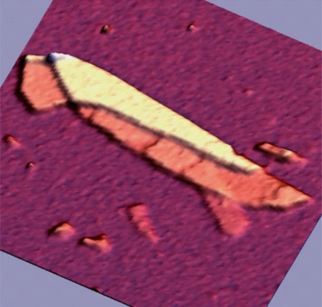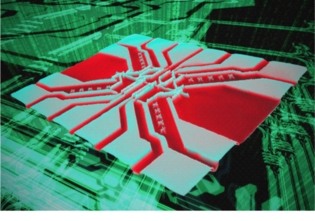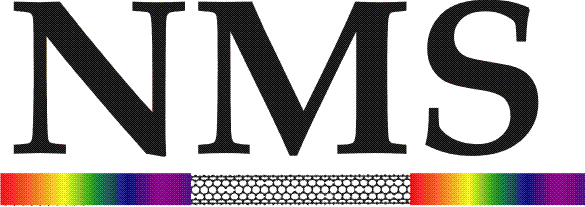|
The main NMS research areas
combine growth, characterisation and device assembly. In particular, we
work on growth and characterization of diamond-like carbon, graphene,
carbon nanotubes, and semiconductor nanowires for coating,
optoelectronics and sensing applications. We have a strong focus on the
non-linear optical properties of nanotubes for applications in photonic
devices. We also pursue the non-destructive characterization of carbon
films, devising innovative ways to probe their structure and tailor it
to get better mechanical, optical and electronic properties. We have a
leading activity on the application of Raman spectroscopy to carbon
films and nanomaterials. All our experimental work is paralleled by
first principles calculations and modeling. Thus we have a
comprehensive approach to nanotechnology: we can design and grow new
materials, characterize them, implement them into devices and
investigate their fundamental properties. We have several projects
funded by the EPSRC, the Royal Society, Europe, The Newton and
Leverhulme trusts, and we enjoy close collaborations with several
companies.
Our facilities and expertise are also available,
by arrangement, for other researchers and for industries to analyse any
materials of interest. Consulting on nanomaterials and spectroscopy
applications is also offered.

|
|

The successful application
of nanomaterials for nanotechnology faces four main challenges:
materials preparation, characterization, device fabrication and
integration. The physical properties of nanomaterials strongly depend
on their atomic-scale structure, size and chemistry but also on their
organisation and aggregation. To fully exploit the technological
advantages offered by these self-assembled molecular structures it is
essential to acquire the ability to select, control and manipulate
individual or aggregated nanomaterials. There has been much progress in
the synthesis and characterization of nanostructures such as nanotubes,
nano-crystals, atomic wires, organic and biological nanostructures,
molecular junctions and graphene layers. However, immense challenges
remain in understanding their properties and interactions with external
probes to realize their tremendous potential for applications. Some of
the frontiers in nanoscience include molecular electronics, nano-scale
opto-electronic devices, nanomechanics, light harvesting and emitting
nanostructures. Nanotubes, nanowires and graphene dominate the pursuit
for materials for future nanotechnology applications. The NMS group
aims to give a significant contribution in each of these exciting
research areas.
|

